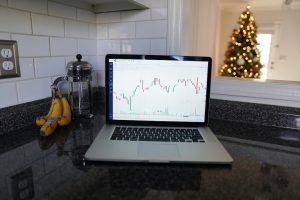Forex trading, also known as foreign exchange trading, is a popular investment option for many individuals. With the potential for high returns and the ability to trade 24 hours a day, it’s no surprise that many people are drawn to this market. However, with great returns comes great responsibility, and that includes filing taxes on your forex earnings. So, how much do you have to make in forex to file on taxes?
First things first: the Internal Revenue Service (IRS) treats forex trading as capital gains and losses. This means that forex traders are subject to the same tax rules as stock traders, and any gains or losses must be reported on your tax return.
The amount of money you have to make in forex to file on taxes depends on a few factors. The first factor is your filing status. If you’re single and under the age of 65, you must file a tax return if your gross income is at least $12,400 in 2020. If you’re married and filing jointly, you must file a tax return if your gross income is at least $24,800 in 2020. If you’re married and filing separately, the threshold is $5 for any income.
The next factor to consider is the type of forex trading you’re doing. If you’re a casual trader who only dabbles in forex from time to time, you may not have to worry about filing taxes. However, if you’re a professional forex trader who makes a living from trading, you’ll have to report your earnings on your tax return.
The IRS considers you a professional trader if you meet certain criteria. First, you must trade frequently and regularly. Second, you must trade with the intent of making a profit. Third, you must be able to show that trading is your primary source of income. If you meet these criteria, you’ll have to file taxes on your forex earnings, regardless of how much you make.
If you’re a professional forex trader, you’ll report your earnings on Schedule C (Form 1040), which is used to report self-employment income. You’ll also have to pay self-employment taxes, which are currently set at 15.3% of your net earnings. This tax includes both Social Security and Medicare taxes.
It’s important to note that if you’re a professional forex trader, you may be able to deduct certain expenses related to your trading activities. For example, you may be able to deduct the cost of your computer, internet connection, and trading software. You may also be able to deduct the cost of attending trading seminars and conferences.
In conclusion, the amount of money you have to make in forex to file on taxes depends on your filing status and the type of forex trading you’re doing. If you’re a casual trader who only trades occasionally, you may not have to worry about filing taxes. However, if you’re a professional trader who makes a living from trading, you’ll have to report your earnings on your tax return, regardless of how much you make. It’s important to keep accurate records of your trading activity and consult with a tax professional to ensure that you’re complying with all tax laws and regulations.





